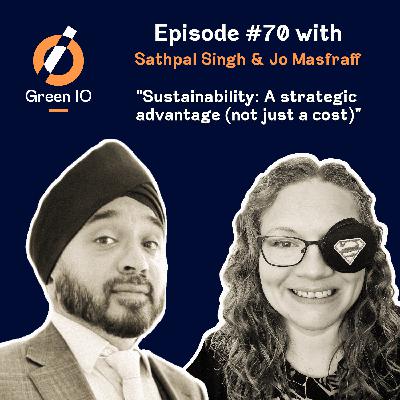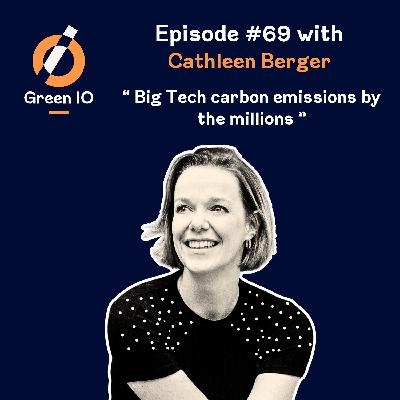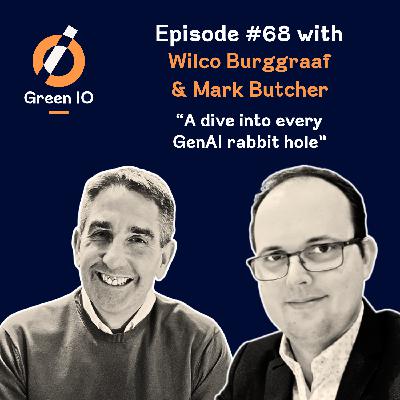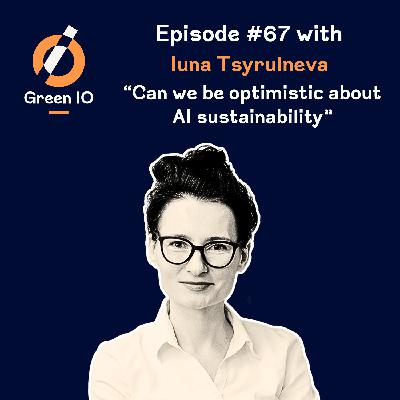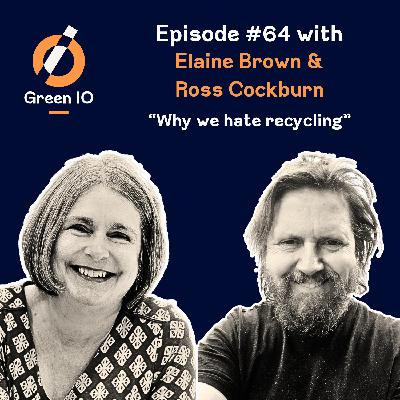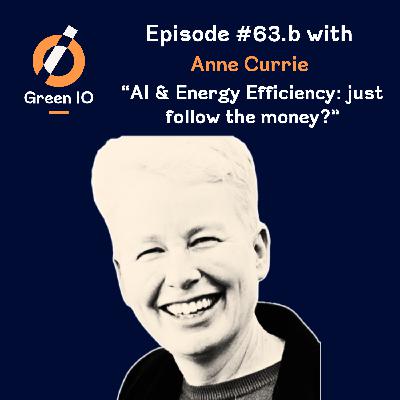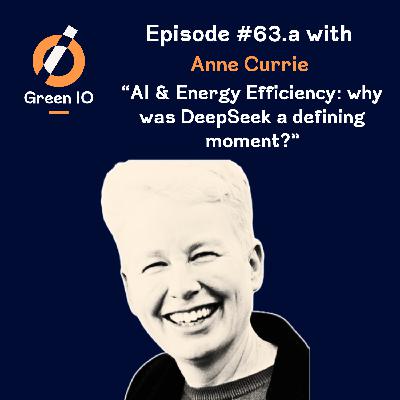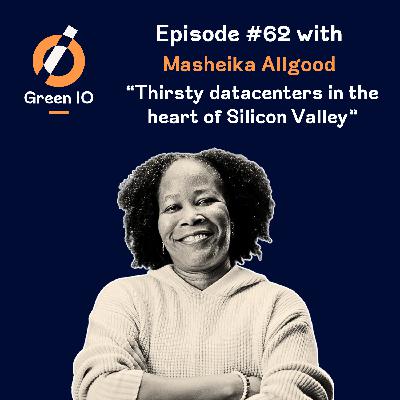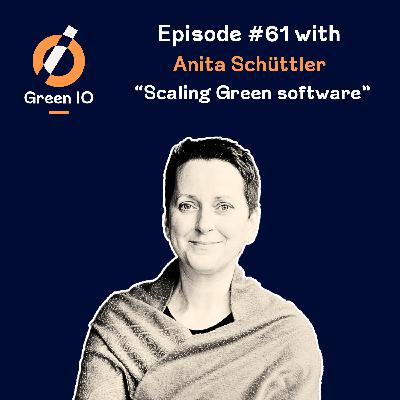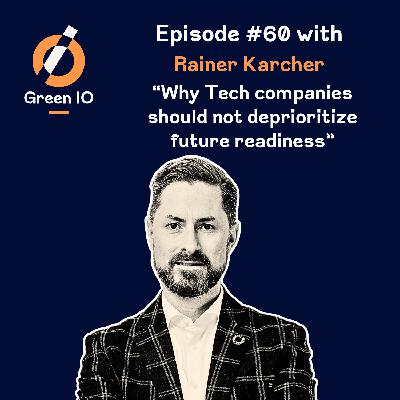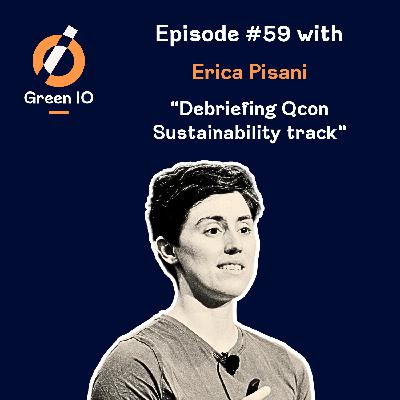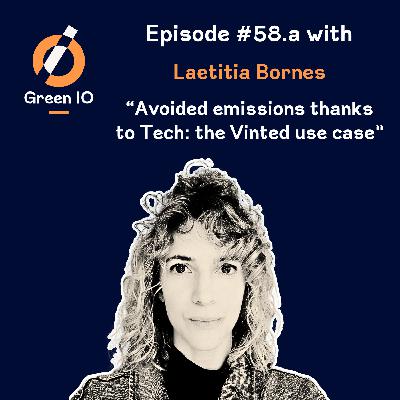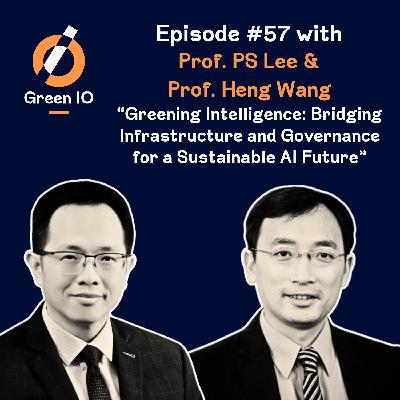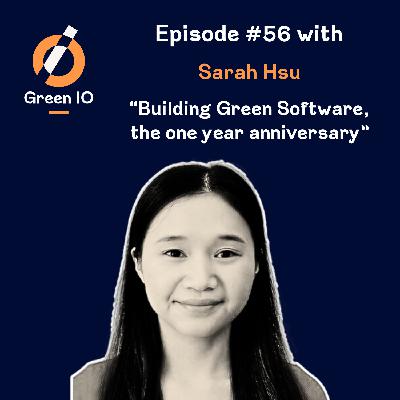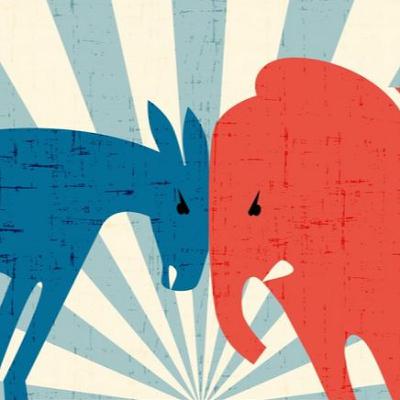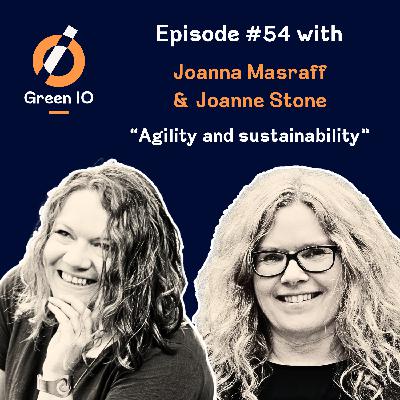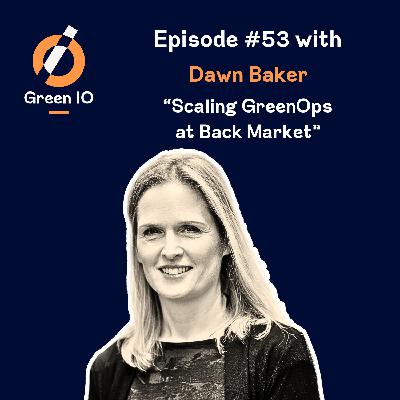Discover Green IO
Green IO

Green IO
Author: Gaël DUEZ
Subscribed: 25Played: 315Subscribe
Share
© Gaël DUEZ
Description
Green IO with Gaël Duez explores how to reduce the environmental impact of our digital world. Twice a month, on a Tuesdays guests from across the globe share insights, tools, and alternative approaches, enabling all responsible technologists, within the Tech sector and beyond, to build a greener digital world, one byte at a time.
77 Episodes
Reverse
It’s time that we reframe sustainability as a criterion for success, not just a checkbox on a regulatory report.
And on today’s episode of Green IO, Gaël is joined Jo Masraff and Sathpal Singh, two domain experts who demonstrate how changing our approach to sustainability can be a key difference maker for businesses across any industry. Jo and Sath also discuss the key findings from the recent Digital Product Sustainability Pulse Report, along with what they’ve seen in the field first hand, and (realistic) hopes for the future.
They say that numbers don’t lie… but what if we are looking at the wrong numbers to begin with?
On today’s episode of Green IO, Gaël is joined by Cathleen Berger who is here to help us decipher why accurate emissions reporting is so crucial, and why Big Tech continues to make big mistakes when it comes to the figures they release.
Because as the former Head of Sustainability at Mozilla, a lecturer at the Friedrich Schiller University and the head of research and policy for the Deputy Chair on the Digital Committee of the German parliament it’s safe to say that Cathleen knows a thing or two about why accurate data matters.
Over the last 3 months, several studies were published about GenAI and its environmental footprint. The most famous are Mistral AI’s life cycle analysis and Google’s study on Gemini. The opportunity and the conclusions of the Gemini prompt study were heavily debated in the Green IT field, including by two of the most respected thought leaders: Mark Butcher and Wilco Burggraaf. This Green IO episode is thus a first: the first ever debate. A polite, constructive and yet incredibly insightful debate where Mark, Wilco and their host Gaël Duez.
❤️ Like and subscribe so that you never miss an episode. All the references, the link to get free tickets, the wrap-up article and the full transcript is on Green IO website here: https://greenio.tech
The potential impact of Artificial Intelligence on our worsening climate crisis is certainly a hot topic, pardon the pun.
Fortunately, we have an expert on today’s show to help us make sense of it all. Iuna Tsyrulneva is one of the leading voices in AI and sustainability. Well versed on both topics, Iuna holds a PhD in materials science, and works at Earth Observatory of Singapore with an interdisciplinary approach. She’s full of interesting insights, and brings a dynamic approach to thinking about the larger issue.
For example, did you know that saying “thank you” after every prompt actually contributes to AI energy usage? And they say kindness costs nothing…
As you’ll hear from Iuna, optimisation is the key to affecting sustainability in Artificial Intelligence. And that goes beyond ‘clean code’. Throughout our conversation, Iuna unpacks the end-to-end scope of optimisation, or what she calls her ‘four pillars’ of sustainable AI, that being algorithmic, hardware, data center and usage optimisation.
In this episode, Gaël and Iuna also discuss:
Sustainable AI vs AI for Sustainability
How (if at all) can we mitigate Jevons paradox?
Tackling the financial incentive vs sustainability in AI
Why she’s optimistic about the future of sustainable AI
Using more energy efficient languages to build next-gen AI
Leveraging open-source frameworks to lower resource costs
Practical tips on how to make AI models more energy efficient
And much more!
❤️ Like and subscribe so that you never miss an episode.
All the references, the link to get free tickets, the wrap-up article and the full transcript is on Green IO website here: https://greenio.tech
“We're living under a water stressed world. Maybe not today, but a certain time of the year.” This new reality stated by Dr Shaolei Ren questions both the resiliency and the water footprint of the data center industry.
In this episode we bring an academic perspective on these questions with two of the most renowned experts in the field, Dr Shaolei Ren and D’ Mohammad Islam. They conducted an intensive survey in the US and shared many insights about the water consumption of data centers with their host Gaël Duez such as: The difference between water consumption and water withdrawal, The water displacement problem, Water is never a single number and has different colors, The trade-off of heat reuse, Why average water consumption of data centers at national level isn’t useful, How to blend cooling technics, A future of zero operational water data centers, The pro and con of nuclear energy to power data centers, and much more!
❤️ Subscribe, follow, like, ... stay connected the way you want to never miss an episode, twice a month, on Tuesday!
Today, we don’t have 1 or 2 guests but 10! In partnership with the YouTube channel Architect Tomorrow, we are glad to share with you snippets and interviews of the speakers who made the latest Green IO Conference in London a huge success last week.
The audio quality has improved since last year but is still perfectible. Except for this, I hope you’ll enjoy this episode as much as we enjoyed crafting Green IO London 2025 for its attendees.
Elaine and Ross hate recycling. Both know first hand about our computers’ and smartphones’ life. About the wasted opportunities to better use the precious resources into it. Elaine Brown is the CEO of the Edinburgh Remakery who refurbished 295 laptops last year. She’s also a keen expert on the right to repair issues. Ross Cockburn is the Trustee of Reusing IT who has been dealing with repaired devices from Africa to Ukraine over the last 25 years.
Gael Duez sat down with them to cover multiple topics such as: The business of ITAD; The financial and social rewardings of giving to charities; The SSD revolution for longevity; Linux, the (not so) secret weapon for reusing IT; The reality of Digital poverty; Right to repair laws without teeth; The multiple cost of Windows 10 EOL; And … a new acronym invented during the recording: IUTA!
Anne Currie is the co-author of the acclaimed O’Reilly book “Building Green Software”, a pillar of the GSF, a veteran in the Cloud Industry and also a SF novelist with her series of panopticon books.
Preparing her forthcoming keynote at Green IO London, she went all the way down into the rabbit hole of AI and energy efficiency. She investigated from OpenAi to DeepSeek and open source models, what a software developer using these models can and cannot do to reduce energy consumption, and so on. In the second part of this episode, Anne Currie et Gaël Duez discussed the East compute / west data Chinese strategy, picking the cheapest AI model today and ... tomorrow, learning from python to forecast trend in open source, 4 questions to ask when choosing an AI powered product, the case for Wright’s law in open source, and much more!
Anne Currie is the co-author of the acclaimed O’Reilly book “Building Green Software”, a pillar of the GSF, a veteran in the Cloud Industry and also a SF novelist with her series of panopticon books.
Preparing her forthcoming keynote at Green IO London, she went all the way down into the rabbit hole of AI and energy efficiency. She investigated from OpenAi to DeepSeek and open source models, what a software developer using these models can and cannot do to reduce energy consumption, and so on.
In the first part of this episode, Anne Currie et Gaël Duez discussed:
- AI scaling law and its brute force philosophy
- The DeepSeek pivotal moment (hint: not necessarily the product itself)
- 3 actions made by DeepSeek to optimize
- Open source & efficiency
And much more!
❤️ Subscribe, follow, like, ... stay connected the way you want to never miss an episode, twice a month, on Tuesday!
A month ago, Google released its 2024 sustainability report. Its overall water consumption increased by 28% in a year. Less publicized than the data center energy boom, water is also pivotal for the Tech industry and data is even scarcer.
To better understand this secret but serious love affair between big tech and water, what better location to investigate than its birth place? Yes. THE silicon valley. And no one there is better qualified to explore the topic than Masheika Allgood who lives in Santa Clara and recently created a Data Center Water Consumption Calculator based on public data. Over their conversation, Gael Duez and her covered:
- The astonishing amount of water used by data centers in California and why it could have been even worse
- “Back to the loop” & the limits on the efficiency gain from new cooling technics
- Air pollution & the trade-off of heat reuse in urban area
- The unignorable noise pollution
- How big tech lawyers have an edge on city council and community activism
And much much more!
❤️ Subscribe, follow, like, ... stay connected the way you want to never miss an episode, twice a month, on Tuesday!
What does it take to go beyond raising awareness in green software? To avoid checking just boxes? What is required to scale green software practices in a company?
To discuss these issues, Gaël Duez welcomes Anita Schüttler on this episode “from the trenches”. Anita is a seasoned software engineer and expert on digital sustainability. She works as Head of Sustainability at IT company neuland. Besides, she is a co-chair of the German Bundesverband Green Software, an auditor for the Blue Angel for software and a Champion of the Green Software Foundation.
Together, they covered many topics including:
- The formation of the Bundesverband Green Software,
- The CO2 challenge project,
- Scaling green software initiatives & measuring its success,
- The challenges in certification processes,
- The emotional roller coaster of nonprofit initiatives,
And much more!
❤️ Subscribe, follow, like, ... stay connected the way you want to never miss an episode, twice a month, on Tuesday!
“Climate activist in a suit”.
This is how Rainer Karcher describes himself.
It is an endless debate between people advocating for the system to change from the outside and those willing to change it from the inside. In this episode Gaël Duez welcomes a strong advocate of moving the corporate world into the right direction from within? Having spent 2 decades in companies such as Siemens or Allianz, Rainer Karsher knows the corporate world well, which he now advises on sustainability.
In this Green IO episode, they analyse the current backlash against ESG in our corporate world and what can be done to keep big companies aligned with the Paris agreement, but also caring about biodiversity or human rights across their supply chain. Many topics were covered such as: Why ESB has nothing to with “saving the planet”, 3 tips to tackle the end of the month vs end-of-the world dilemma, Embracing a global perspective on ESG and why the current backlash is a western world only issue, Knowing the price we pay for AI and how to avoid rebound effect, the challenge with shadow AI and why training is pivotal, and yes they talked about whales also and many more things!
How is sustainability covered in main tech conferences?
Sure cybersecurity, DevOps, or anything related to SRE, is covered at length. Not to mention AI… But what room is left for the environmental impact of our job ?
And what are the main trends which are filtered out from specialized conferences in Green IT such as Green IO, GreenTech Forum or eco-compute to generic Tech conferences?
To talk about it Gaël Duez sat down in this latest Green IO episode with Erica Pisani who was the MC of the Performance and Sustainability track at QCon London this year. Together they discussed:
- The inspiring speakers in the track
- Why Qcon didn’t become AIcon
- How to get C-level buy-in by highlighting the new environmental risk
- The limit to efficiency: fine balancing between hardware stress and usage optimization
- Why performance and sustainability are tight in technology
- Why assessing Edge computing’s positive and negative impact is tricky
And much more!
❤️ Subscribe, follow, like, ... stay connected the way you want to never miss an episode, twice a month, on Tuesday!
Why is the model of a Nobel prize winner not necessarily good science? What is “good” modelling? Is access to information enough to change a system behavior?
This episode is the second part of a long interview with Laetitia Bornes, a Doctor in Human-Computer Interaction, Systems Engineering and Systemic Design who is one of the co-authors of a research paper investigating the claims made by the second hand digital platform Vinted about the avoided carbon emissions thanks to its operations. As presented in the first part, their findings were surprising, enlightening for the IT sector and nuanced!
In this second part, Gaël Duez and Laetitia Bornes moved away from the Vinted use case and discussed modelling, the scientific method and Systems Thinking in general. You can enjoy this discussion without having listened to the first episode however we would suggest you do so to enjoy all the references, especially to the Vinted study. Among the topics covered in this second part are:
- An impressive transparency exercise about the limit of the model used for the Vinted use case,
- Why models are “wrong” and how to still use them purposefully,
- Why a Nobel prize modeling in his lab without publishing isn’t doing science (yet),
- Access to information and its connection to the four main categories of leverage points,
- The concept of protopia,
And much more!
❤️ Subscribe, follow, like, ... stay connected the way you want to never miss an episode, twice a month, on Tuesday!
All the references, the link to get free tickets, the wrap-up article and the full transcript is on Green IO website here:
https://greenio.tech/blog
Can a digital company be “carbon negative”? What should we think of these claims of “tons of carbon avoided” coming from 2nd hand platforms such as Vinted or Back Market?
Dr Laetitia Bornes conducted research on Vinted claims, investigating its data sources and the methodology used with her colleague David Ekchazer. Their findings were surprising, enlightening for the IT sector and nuanced! Among the ones she share with Gaël Duez in this first part of the episode were:
- The pitfalls of assessing "Tech for Good" even using Life-Cycle Analysis,
- The complexity of rebound effects and other indirect effects,
- How to improve things as a Designer, … and as a CEO!
- The need for a systemic perspective and some tools to build it,
and much more!
And because this conversation was so rich that it couldn’t be reduced to a one hour discussion, this episode comes in 2 parts, the first one focusing on the Vinted use case and the second one where we discussed modelling, the scientific method and Systems Thinking in general.
❤️ Subscribe, follow, like, ... stay connected the way you want to never miss an episode, twice a month, on Tuesday!
All the references, the link to get free tickets, the wrap-up article and the full transcript is on Green IO website here:
https://greenio.tech/blog
“It's always a case of fit for purpose, or what we call a proper engineering”. Some down-to-earth facts and analysis were coined by Pr PS Lee, one of the world's top experts in liquid cooling - and Pr. Heng Wang - a renowned expert in digital governance - while cross-analysing Singapore’s main challenges from an infrastructure and governance perspective of the ongoing AI Boom. Among the topics covered in this episode recorded live from the Green IO Singapore conference with Gael Duez were our imperfect, incomplete and unpredictable knowledge on AI, the fit for purpose approach with the right mix of cooling solution, dealing with legacy datacenter infrastructure, the moratorium on new data center and the other tools used by the Singapore government to cap energy consumption, and much more!
A year ago, Building Green Software was released by O’Reilly. Since Tim Frick’s book “Designing for sustainability” (8 years ago!), O’Reilly didn’t publish anything fully focusing on sustainability. So, it’s a fair statement that this book was long awaited.
But a year is an eternity in IT. This is why Sarah Hsu, one of its 3 co-authors as well as the chair of the Green Software Foundation’s Principles of Green Software committee, joined the show to talk about the trends she witnesses first hand in the green software engineering field and how she would envision a v2. More specifically she talked about:
🌟 GreenOps being the new kid in the block
👨🏫 What FinOps can teach to GreenOps
📈 How SRE can help treating environmental metrics like any other business metrics
🕵️♀️ The hard truth about the four nine
📏 Progress made in measurement
🔬 What the Rumsfeld’s Metrics can tell us about the difference between monitoring and observability
🚧 Why it should always be space and time for deviation
And much more!
❤️ Subscribe, follow, like, ... stay connected the way you want to never miss an episode, twice a month, on Tuesday!
All the references, the link to get free tickets, the wrap-up article and the full transcript is on Green IO website here:
https://greenio.tech/blog
Did containerization ship away our environmental responsibility?
Containers come with the promise of automation, scalability and reliability. The question is how to add sustainability to the list without breaking its other benefits. To talk about these challenges, Gaël Duez welcomes Flavia Paganelli and Niki Manoledaki, 2 experts in Kubernetes who are also pillars of the CNCF TAG Environmental Sustainability workgroup.
This episode might beat the record of acronyms: KEIT, CNCF, TAG … And yet Flavia Paganelli and Niki Manoledaki provided crystal clear explanations when they covered:
🍳 Why Kubernetes is a lot like a restaurant,
⛈️ The challenges with sustainability in cloud computing,
🛠️ The CNCF KEIT project,
🌱 CNCF’s reorg and what might happen to the TAG Environmental Sustainability,
💪 The power of open source communities,
And much more!
❤️ Subscribe, follow, like, ... stay connected the way you want to never miss an episode, twice a month, on Tuesday!
📧 Once a month, you get carefully curated news on digital sustainability packed with exclusive Green IO contents, subscribe to the Green IO newsletter here.
📣 Green IO Singapore is on April 6th and our next stop is in New York on May 15th. Every Green IO listener can get a free ticket using the voucher GREENIOVIP. A small gift for your huge support. 🎁
"We are 100% convinced that IT sustainability matters but we can’t add more non business requirements, we have agile teams."
This often heard sentence from product managers or CPOs, led to this dedicated episode on agility and sustainability where host Gaël Duez welcomes 2 seasoned agile coaches: Joanne Stone, the founder of Agilist 4 planet and the We Hope Magazine, and Joanna Masraff, co-organiser of the the Agilists4Sustainability meetup group, and the Agilists4Planet conference. In this interview, filled with positive energy, they covered:
🛠️ Sustainability twisted technics,
🏃 Urgency vs sustainable pace of transformation,
🎯 Objectives or Key Results when incorporating Sustainability into OKR framework,
🎬 How to kick start sustainability transformation,
🔥 The importance of passionate people and influencers,
🧙 Agile coaches as alchemists of change.
Changing its Cloud provider is never small potatoes, especially when a platform operates up to 40,000 containers and has about 4 million unique visitors a day to its website. Yet Back Market made the move from AWS to Google Cloud Platform motivated primarily by … sustainability concerns! In this episode its CTO, Dawn Backer, chats with Gaël Duez and covers a wide range of GreenOps topics such as:
☁️ Why they switched from AWs to GCP
📏 The needed granularity in carbon measurement
💸 Why FinOps is a no brainer to boost sustainability
🏦 The importance of carbon P&L in decision making
⚖️ The Dilemma of running GreenOps between carbon reduction and faster cloud instances
And much more!
❤️ Subscribe, follow, like, ... stay connected the way you want to never miss an episode, twice a month, on Tuesday!
📧 Once a month, you get carefully curated news on digital sustainability packed with exclusive Green IO contents, subscribe to the Green IO newsletter here.
📣 Green IO Singapore is on April 6th and our next stop is in New York on May 15th. Every Green IO listener can get a free ticket using the voucher GREENIOVIP. A small gift for your huge support. 🎁


